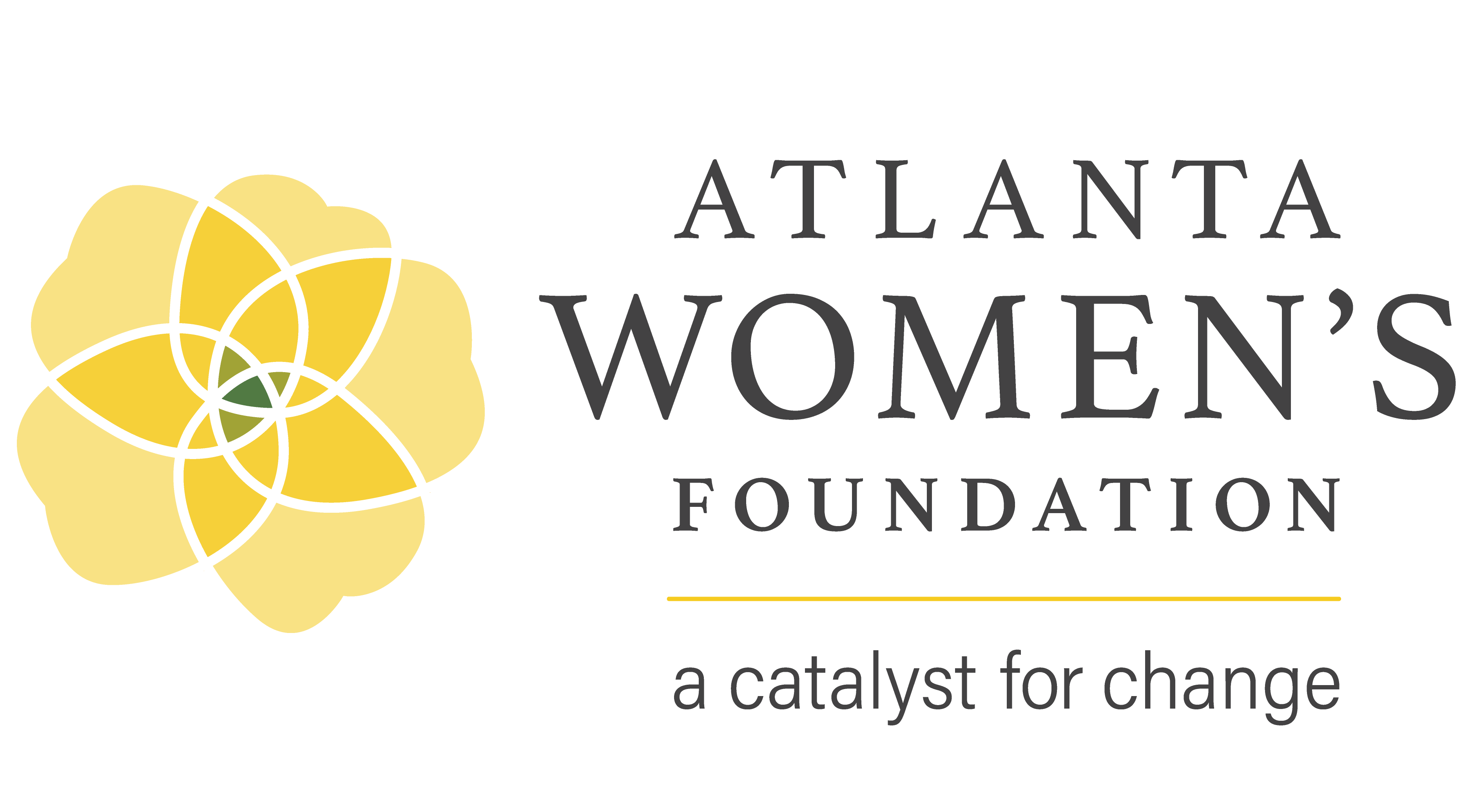The Impact of Poverty on Women’s Mental Health
Poverty is a pervasive issue that affects millions of people in the United States — it can cast a shadow on their lives and even aspirations. Unfortunately, poverty imposes a disproportionate burden on women. By exploring the intimate connection between poverty and mental health, the Atlanta Women’s Foundation (AWF) hopes to shed light on this important societal issue so that together, we can work towards a more inclusive and supportive society.
Mental illness represents an important public health problem. Data from a 2013 Georgia study (Reeves, W. C., Lin, J. S., & Nater, U. M., 2013) of the Atlanta Metro area (DeKalb and Fulton Counties), identified 19.8% of their female adult participants suffered from anxiety disorder and 18.5% suffered from mood disorders. Of the women identified with mental health disorders, 19.4% made less than $20,000 annually.
The Georgia Department of Community Health noted that 39.9% of women that did not complete high school experienced mental distress (Source: Georgia Department of Community Health, Title V Block Grant, 2010). Mental health is essential to personal well-being. In Atlanta, 14.6% (99,235) of individuals reported suffering from depression. (Saint Joseph Hospital’s Community Needs Assessment, 2012).
Depression is more prevalent among low-income populations. The subpopulations in Georgia with particularly high prevalence are:
- Adult females
- Individuals of all ages below 200% of poverty
- Adults with less than a high school education
- Non-white children
- Young adults
- People living in institutions and group quarters
- Adults who are separated, divorced, or widowed
- Pacific Islanders
By empowering women economically, we will simultaneously nurture their mental health while providing this group with more opportunities.
Stress and Anxiety : An Ongoing Cycle

It is a normal part of the human experience to feel stress, and even anxiety from time to time. After all, our world is becoming increasingly complex, fast-paced, and many of us have faced challenges in life. By managing emotions well, stress can actually be beneficial, helping us adapt, grow, and improve our skills.
The lives of women impacted by poverty are filled with many troubles, often piled on top of each other—frustration with not being able to find the job they want, handling their children’s sicknesses, or struggling to make ends meet.
They focus on raising their children and providing them with as much comfort as they can. These women experience stress, grief, and depression like everyone else, but often without the resources or networks in place to handle these strong emotions in the most healthy way.
Daycare, food, and diapers can be expensive for parents and cause financial stress. Some women and girls have severe mental illnesses such as schizophrenia or bipolar disorder. However, many others are simply trying to navigate the challenges and pressures of everyday life.
Recently, we hosted an ‘All Women Forward’ event where women and men, from diverse professional backgrounds, had gathered to champion a shared goal — advance equality for women and equality for girls. Renowned author and advocate Cassandra Worthy joined us as our guest speaker. In her book, Cassandra discusses how we can accept and use negative emotions to change and grow personally.
In that context, we face a very important question. When is stress and anxiety considered detrimental to one’s mental well-being? The answer lies in frequency. Although it is healthy to experience stress occasionally, chronic and persistent stress can harm one’s mental well-being.
The Atlanta Women’s Foundation understands that there are women in Atlanta who are trapped in poverty. We are committed to assisting them in breaking free from this cycle.
Food Insecurity and its Link to Mental Health

Our bodies rely on adequate nutrition in order to function properly — we are biologically wired that way. Yet, women facing poverty have limited access to quality, nutritious foods for the following reasons:
- Affordability: Women in poverty have limited income in which they can spend on nutritious food. They must spend more money on important things like rent, utilities, healthcare, and transportation.
- Geographic location: Women in poverty may live in residential areas that do not have easy access to supermarkets. Some people use public transportation, but it can be a long journey. Low-income women may choose less healthy food options due to limited choices.
When we lack consistent access to nutritious foods, we begin to experience a domino effect of various health consequences. But the negative health effects don’t only affect us physically; they can also impact our mental health.
Researchers conducted a study to explore the connection between food insecurity and mental health, and they found that the group who had experienced food insecurity had a 257% higher risk of anxiety and 253% higher risk of depression than those who did not experience food insecurity.
The Atlanta Women’s Foundation gets to the core of food insecurity by breaking the cycle of poverty. Our various programs, such as the Economic Empowerment Program, equips women with life-sustaining skills.
Poverty and Parental Stress

Children are the pride and joy for many families — they truly represent the future of our nation. However, raising children can be extremely costly in the financial sense. Daycare, food, and diapers can be expensive for parents and cause financial stress. Women in poverty experience an increased financial burden.
Women are dealing with issues like education, housing, and transportation. They are attempting to overcome those barriers in order to improve the life circumstances for themselves and their children. Within those family units, each member has the opportunity to make decisions that will either benefit or harm the other members. A mother could seek help from an organization to aid her in finding a job.
A father could decide to abandon his family, leaving the other members to struggle without his income. A teenage daughter could have unprotected sex and become pregnant. Getting pregnant at a young age has several negative consequences. It becomes more difficult for the teenager to finish school. Additionally, it adds more responsibility for both the teenager and her family. Lastly, it keeps them trapped in poverty for generations.
“Education is the primary lever in this society, which is why addressing teen pregnancy is key. The pregnancy usually ends the teen’s education and dooms her to a life of dysfunctional circumstances,” one expert said.
Having a child when they are older allows girls to complete their education, develop a greater level of maturity, and perhaps be on the path to financial stability. It could also allow them to afford the appropriate prenatal care for their child, find the best early education opportunities, and have a more structured schedule for the child’s early development, thereby giving the child a better opportunity for success down the road.
The Atlanta Women’s Foundation understands that low-income women in Atlanta can’t afford high-quality childcare. We are passionate about connecting low-income women to quality childcare assistance. We dedicate our grantmaking initiatives to advancing this cause.
Women in Poverty Experience Social Stigma

Poverty and women’s mental health share a deep connection, and women in poverty face mental health stigmas. Our society has made progress in recognizing and assisting mental health. However, there is still much work to be done to achieve true inclusivity.
Low-income women may avoid seeking support in mental health services due to the stigma attached to depression and anxiety. This can cause feelings of isolation and perpetuate a cycle of anxiety. Several women interviewed by AWF stated that they avoid some service providers or training programs just because they did not feel welcome in their offices.
They may have been treated poorly, or they may have just felt the providers were not willing to work with their unique situation. Either way, keeping in mind that the women seeking assistance are trying to do the best they can for their families and that many are approaching rock bottom could improve the way the women are treated.
The Atlanta Women’s Foundation hosts multiple events throughout the year to advance important societal issues that women and girls face. We create a space where honest conversations can take place, all the while advancing equality for women and girls. Our next event is ‘Numbers to Big to Ignore’ Luncheon with actress, model, and author Brooke Shields as our guest speaker!
The Atlanta Women’s Foundation is the only public Foundation in Georgia dedicated exclusively to advancing gender equality by providing necessary funding to women and girls serving nonprofits through our strategic collective impact grantmaking model. If you support women’s mental health and girls’ mental health, there are various ways you can support our mission. We are one of the leading nonprofits in Georgia committed to gender equality. You can support our cause here.
